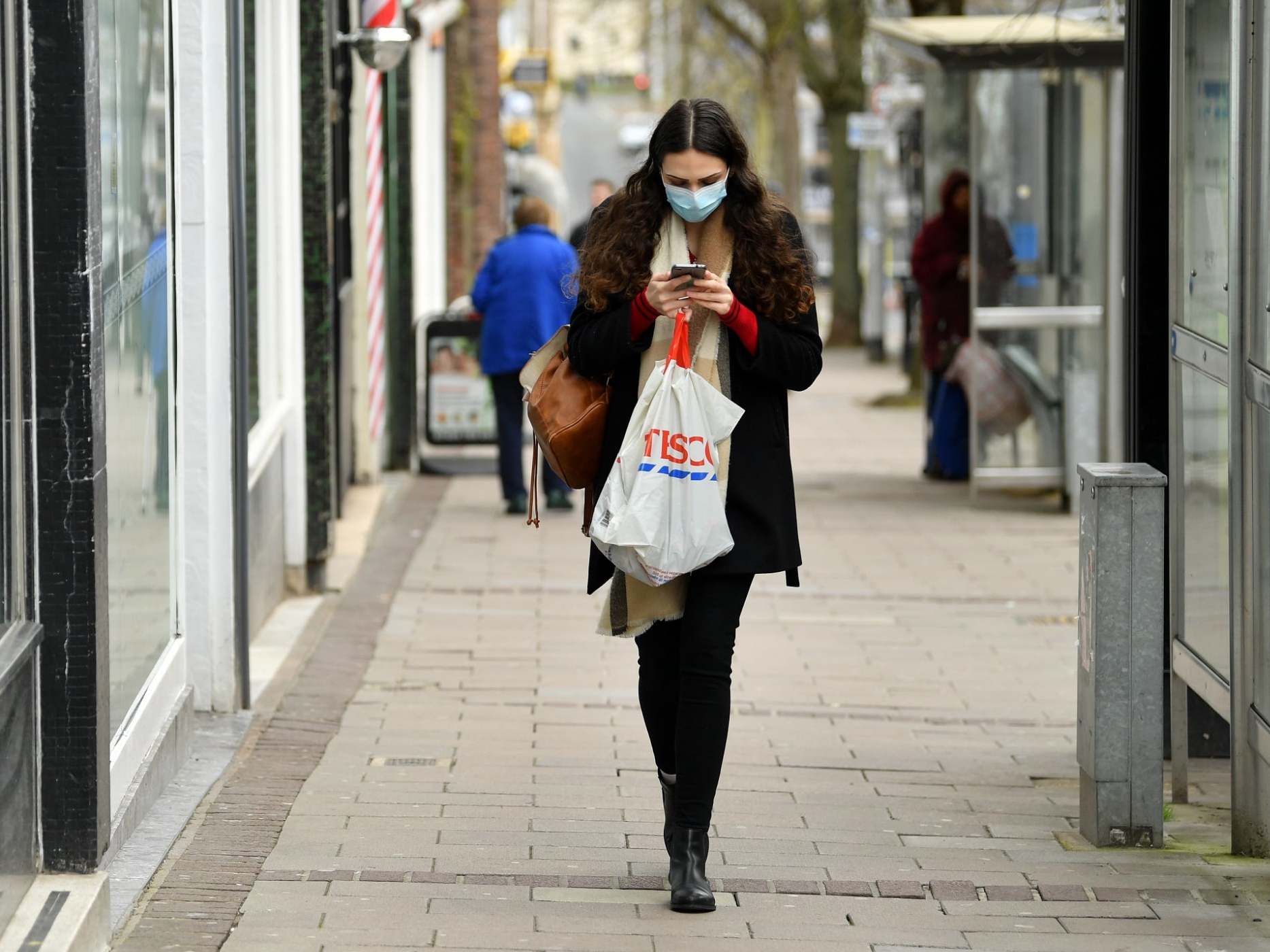Coronavirus: Why women are being hit hardest by the economic fallout
Exclusive: Poll finds women in work substantially more anxious about economic prospects

Your support helps us to tell the story
From reproductive rights to climate change to Big Tech, The Independent is on the ground when the story is developing. Whether it's investigating the financials of Elon Musk's pro-Trump PAC or producing our latest documentary, 'The A Word', which shines a light on the American women fighting for reproductive rights, we know how important it is to parse out the facts from the messaging.
At such a critical moment in US history, we need reporters on the ground. Your donation allows us to keep sending journalists to speak to both sides of the story.
The Independent is trusted by Americans across the entire political spectrum. And unlike many other quality news outlets, we choose not to lock Americans out of our reporting and analysis with paywalls. We believe quality journalism should be available to everyone, paid for by those who can afford it.
Your support makes all the difference.Women are bearing the brunt of the economic fallout sparked by the coronavirus crisis, a leading think tank has warned.
A poll, carried out by the Royal Society for the Encouragement of Arts, Manufactures and Commerce (RSA), found women who are currently in work are substantially more anxious about their economic prospects in the wake of the pandemic than men.
While some 46 per cent of female workers say money concerns prompted by the economic chaos has had a direct impact on their mental health, only 37 per cent of men said the same.
Women, who are radically overrepresented in low-paid precarious sectors such as care and retail, were also more fearful they would become homeless — with 19 per cent of women and 13 per cent of men anxious about this.
While some 55 per cent of women were concerned they were at risk of contracting coronavirus at their work, only 45 per cent of men said the same.
The disparity may be tied to the fact women are dramatically overpopulated in the care sector — with recent NHS figures showing more than 80 per cent of adult social services jobs in 2019 were carried out by female workers, and government figures showing women make up the majority of informal carers in the UK.
Women were also found to be more likely to be faced with economic insecurity more generally — with 37 per cent distressed with the amount of debt they are in but only 29 per cent of men citing the same worry.
While 37 per cent of women would find it difficult to manage to pay an unexpected bill of £100, only 25 per cent of men said the same.
Sarah Darrall, a researcher at the RSA, said: “These figures demonstrate just how tough life is for the UK’s female precariat. The pandemic has added new threats to livelihoods. Job losses pose a threat to women, and combined with the burden of caring duties, which are still disproportionately carried out by women, they will be feeling the pinch the hardest.
“The government needs to consider how its new economic measures will deal with this unequal division of labour, and make sure that women are properly supported, not least through access to proper mental health services at home. A basic income could alleviate some of the issues created by this period of economic uncertainty.”
The RSA, which is demanding a temporary basic income of £100 a week with an initial £1,500 direct cash grant is rolled out, also found the economic chaos unleashed by the pandemic is hitting the “precariat”, both men and women in insecure employment, the hardest.
Sam Smethers, chief executive of Fawcett Society, said: “This research confirms our fears that unless we focus on women and girls during this crisis, we will turn the clock back on gender equality.
“Women are bearing the brunt of the social and economic consequences. Government must recognise and respond to this.”
Earlier in the month, a report by the Trades Union Congress (TUC) found women work an average of two months for free each year due to the UK’s gender pay gap, which is 17.3 per cent.
A recent study by Fawcett Society found men dominate every sector of public life and equality for women remains “generations away” because progress on gender equality is “dismally slow”.
The leading women’s rights charity warned the under-representation of women in politics, the law, trade unions, the civil service, charities, professional institutions, and sports bodies is “consistent and persistent”, while gender equality is “alarmingly” worse for women of colour who are totally absent from senior positions in many sectors.
Experts recently told The Independent women could be disproportionately exposed to coronavirus because they are substantially overrepresented in the care sector.
Frontline service providers said care and nursing homes could be a “mecca for the virus” due to many of its inhabitants not being in good health, and already being at greater risk of contracting the potentially deadly disease.
Campaigners have also warned hundreds of thousands of single mothers are at risk of not being able to afford to feed their children due to emergency measures brought in to cope with the coronavirus outbreak that include the closure of schools.
Around 70 per cent of the two million single parents living in the UK are currently in work, but three out of 10 single parents working are living in poverty. Some 90 per cent of single parents are women.
Single mothers are overrepresented in precarious, low paid jobs with zero-hour contracts which cannot be carried out from home.
You can contact the Samaritans by calling them for free from any phone for free on 116 123, email jo@samaritans.org or visit www.samaritans.org to find details of your nearest branch
Join our commenting forum
Join thought-provoking conversations, follow other Independent readers and see their replies
Comments